The Good, The Not So Good, And The Ugly Of Today's New IPs

New intellectual properties are a dangerous business. A lot of time and work could lead to massive success and assured future prospects in the world of video games. Alternatively, it could lead to catastrophic failure and a scramble to make up for lost time.
New IPs aren’t necessarily rare. They are almost as common as a game with a two or a three after the title; we’re just overly aware of sequels and games based on existing franchises because they are the easiest to promote. During this era of video games, we have seen a lot of new IPs succeed and become some of our favorite franchises, while others have spelled disaster for their developers. Here are the ones that have succeeded (I believe rightfully so), the ones that should have (It saddens me that they didn't), and the ones the failed .
The Good

Assassin’s Creed - Assassin’s Creed actually had a bit of a rough start. Strong marketing behind a pretty game couldn’t help a franchise starter that some loved, many liked, but others hated. The game looked great, but had almost no variety, and a story that ended seemingly just as it started. By the time the second AC title rolled around, Ubisoft had addressed the complaints and delivered an amazing science fiction romp grounded somewhat in history. It’s now one of Ubisoft’s strongest IPs. We’re likely to have sequels well into the next generation of consoles, whenever that may be.

Gears of War - I don’t think anyone ever doubted that Gears of War was going to be a success. It only took a few minutes of gameplay footage and someone reassuring you that, yes, that is actual gameplay, to know that this was something everyone wanted to get their hands on. With Gears of War 3 marking the end of the series (or is it?), it’s likely that Epic Games is prepping its next generation-defining shooter with burly muscular soldiers.

Dead Space - The original Dead Space won on a spot on the cover of Game Informer magazine when it was first revealed. It filled the spot left in our hearts from Resident Evil 4, and good horror action gaming in general. It also had a science-fiction space twist. I’ll never forget the opening sequence, pulling up to what was left of the USG Ishimura, as sunlight spilled into the darkened cockpit. It only took a few seconds to realize that Visceral Games had crafted a fright-filled success, and it only took a few hours to know that you wanted more.

Dead Island - Dead Island is the newest of this successful IP list, but it’s already making a large blood splatter. The trailer impressed us without offering much insight into the gameplay, and even though the final product has some problems, it still can’t seem to stay on store shelves. It has surprised everyone with its immediate popularity. With a movie deal already secured and impressive sales numbers, Dead Island is likely a name we are going to see more of.
Resistance - Resistance launched alongside the PlayStation 3, offering what was certainly the most impressive exclusive launch title on the system. Resistance is three core games strong with a PSP offshoot and a planned Vita title on the way. Though it hit the PS3 launch window, it didn’t feel like a rushed game – just a solid shooter with an interesting alien-infused alternate history twist. Insomniac made sure to have its other successful IP, Ratchet & Clank, cooking on the back-burner just in case, but it wasn’t necessary. Resistance worked out just fine.
Infamous - Developer Sucker Punch decided to take a wide-step away from its previous work with Infamous. Its former titles included the Sly Cooper series, and Rocket: Robot on Wheels on the Nintendo 64. Infamous was a dark, morally ambiguous comic book. There were no anthropomorphic raccoons or friendly robots. For Sucker Punch and Sony, it was a bit of a risk, but for me – all I needed to see was video of Cole leaping from the top of a huge building and crashing to the ground like a super hero to know that I was in.
Uncharted - Naughty Dog was known for three characters before Nathan Drake and Uncharted: Crash Bandicoot, Jak, and Daxter. Uncharted may have had platforming like Naughty Dog’s previous games, and even some gunplay like in Jak 2 and 3, but otherwise Drake’s adventure was an entirely different beast. The everyman/mass murderer (by circumstance, not by choice) impressed everyone right out of the gate. Little details like the way Drake’s shirt would get wet when walking through water, his shirt would fold as he walked, and the way his shirt was tucked in and not tucked in at the same time. Basically, Nathan Drake’s shirt was really impressive, or at least Tim Schafer of Double Fine thought it was. Regardless of the state of dress Drake finds himself in at any given moment, Uncharted paid off and is now one of the PlayStation 3’s biggest franchises.

Mass Effect - From the very beginning, Mass Effect was set to be a trilogy. BioWare found success with Star Wars: Knights of the Old Republic, but wanted to move on to something different. Jade Empire did well, but didn’t seem to expand quite as far as BioWare hoped. The original Mass Effect needed to be a success – not necessarily for the health of the company, but for the future of the story. From the very beginning, the games were meant to tie into each other. Mass Effect was meant to be a narrative epic in the most literal sense, and it we’ll see how Shepard’s story concludes next year.
BioShock - BioShock wasn’t written or built with a sequel in mind, and even though the second game was a serviceable extension of the story, developer Irrational Games knew there was more to be done with the name BioShock than just to revisit Rapture. There’s no telling if the upcoming Bioshock: Infinite will have direct ties to your tenure in Rapture or not, but one thing is for sure. BioShock is a required staple of modern gaming, and it will continue to expand.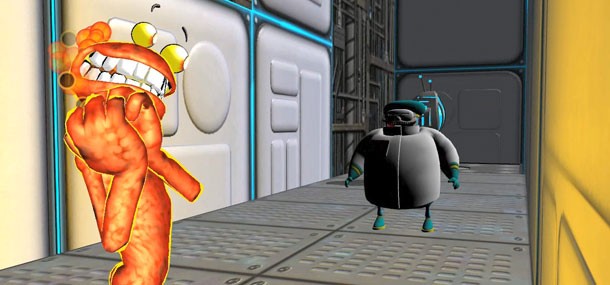
‘Splosion Man - Developer Twisted Pixel has entered a few different characters into the world of video games, but none stuck quite like the ‘Splosion Folks. Both ‘Splosion Man and Ms. ‘Splosion Man offered hugely entertaining experiences that left us wanting more explosions, more scientist body parts strewn across the screen, and more hilarious music about donuts and the beautiful Mandy. Both titles are worthy of being grouped among the best of the Xbox Live Arcade, and a sequel (perhaps a ‘Splosion Man Jr.?) would be welcomed with wide open arms and wallets.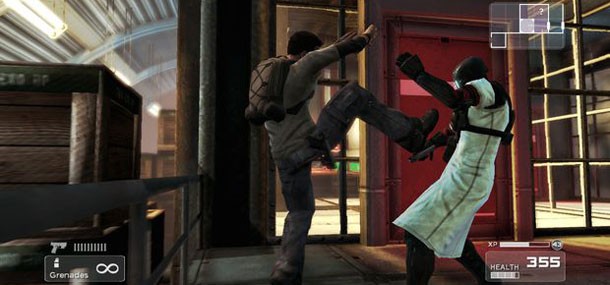
Shadow Complex - Developer Chair, specifically Cliff Blezinski of Epic Games (which owns Chair), has stated that Shadow Complex 2 has been designed, but it has not been developed. It’s not an official announcement by any means, but it’s enough to make anyone who spent a reasonable amount of time with the original game excited. Shadow Complex scratched the 2D itch that Metroid has failed to scratch over the last few years, and it was difficult to put down. My wife said to hell with sleep and beat the game in one sitting over a weekend, and she couldn’t have been more excited about it. It would be a stretch to say a sequel is overdue, considering the game is just over two years old, but come on, Chair. You need to quit messing around with the high quality, highly profitable iOS game Infinty Blade, and explore that other incredibly successful IP you created. It’s time for Shadow Complex 2.
The Not Quite As Good
Alan Wake - Alan Wake is a game with a story we have heard before. I’m not talking about the narrative of the game; I am referring to the development cycle. What began with an exciting announcement was followed by years of silence, possible cancellation rumors, and news of vastly shifting gameplay mechanics. Alan Wake began his life as an open-world game, but ultimately released as a linear action game. It was fun though, and it was even awarded a game of the year award by Time magazine. The sales were disappointing, but not terrible. A sequel is rumored for the next generation Microsoft console, and there have even been some murmurings of an Xbox Live Arcade project. We haven’t seen (or read) the last of Mr. Wake just yet.
Heavenly Sword - If you played Heavenly Sword, then you know that a sequel might be a bit of a surprise. I know the previous sentence contains a hinted spoiler, but developer Ninja Theory expressed interest in returning to the world at one time, saying that pretty much anything can happen in the fantasy world established in Heavenly Sword. Sales and critical reception weren’t quite on par with what Sony hoped for with this exclusive, but maybe someday we can return to the world of Nariko and Kai.
Brütal Legend - Double Fine studios has created some of the most hilarious, imaginative worlds in the video game industry, and the world of Brütal Legend counts among them. Absolutely fantastic, impossible, but totally logical all at the same time, on paper Brutal Legend seemed destined to be a place where many amazing stories could be told. Unfortunately though, sales weren’t where they needed to be. Double Fine was ready to move forward with a sequel but the big wigs said no, and Double Fine decided to change its production model. Now Double Fine is creating completely original smaller games like Costume Quest, Stacked, and Trenched (now called Iron Brigade) for the downloadable market. It’s great for us, because we get to play Double Fine games more often, but I still hope to return to the world of Brütal Legend someday. Also, Psychonauts 2, please.
The Saboteur - The Saboteur had some interesting ideas, especially with its use of color and black and white in an open-world environment. It also gave us a new take on the increasingly redundant World War II/Nazis are bad gameplay. Saboteur just didn’t take off and developer Pandemic Studios suffered because of it. The studio was officially shut down in 2009.
MAG - With a SOCOM developer pedigree backing it up, MAG was supposed to be the reason you had your PlayStation 3 online. MAG initially stood for Massive Action Game. The acronym was eventually dropped, but with multiplayer offering spots for up to 256 players in a single game, it seemed like the perfect title. The game has its fans, and it made it to a 2.0 update, but it’s not quite the massive success it was theorized to be. We may see updates to the game in the future, but as a console selling IP, it just couldn’t take down the multiplayer house that Call of Duty has built.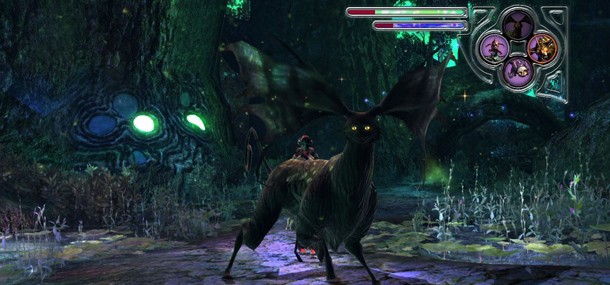
Folklore - While many action/RPGs stick to fantasy themes inspired by hobbits, wizards, and rounded metal fashion accessories, Folklore instead pursued Irish folklore in the interest of offering something a little different. It was a PlayStation 3 exclusive in the early days of the console when action/RPGs were not numerous. Despite its semi-monopoly on the genre, Folklore was not a huge success. Developer Game Republic is still hard at work making games. It has been trying out other original IPs like Majin and the Forsaken Kingdom and Knights Contract, but nothing has stuck yet as a runaway success.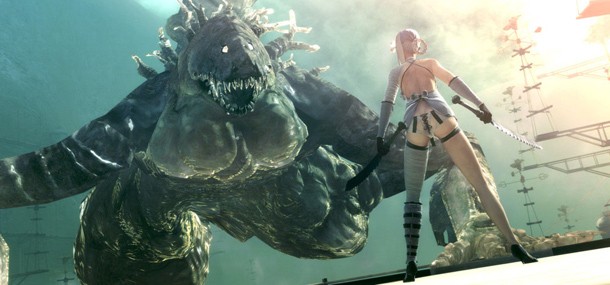
Nier - Some love it, some don’t, but Nier does have some redeeming qualities that set it well apart from the standard Square Enix RPG. We thought maybe we had some exciting news about the series just a few days ago, but it was just a concert. The game had great music so no complaints about a concert highlighting it, but a sequel would have been much cooler.
The Ugly
Too Human - The less said about Too Human, the better – but that’s no fun, so let’s take a look. A production schedule that began during the Nintendo 64 era, endless promises of unrivaled innovation, and a story worthy of the gods (both literally and metaphorically) led to a game which was far too hyped for its own good. It wanted to be a bigger game than it ultimately ended up being, and left us with the first part of a trilogy that will very likely never get resolved.
Dark Sector - Dark Sector was one of the very first games announced for the next generation of consoles. It was announced five years before the release of the Xbox 360. It began as a very clean, sterile adventure in space, but by the time it ultimately released, it underwent massive changes and had more in common visually with Gears of War than Mass Effect. Despite inserting itself into the next-gen race early on, Dark Sector failed to take off. I’m surprised I was even able to remember it for this list.
Dark Void - Dark Void really only had two things going for it: jetpacks and Nolan North. Jetpacks are awesome when well executed, and Nolan North, who has pretty much inserted himself into every game you’ve ever played, performed the role of the lead character. Beyond those two elements though, there wasn’t much to push players to the end of Dark Void. The flying controls were disappointing, the shooting mechanics were bland, and the story was a joke.

Brink - Brink was the kind of game you saw everywhere when it released. Whether it was the bright blue eye-catching poster in the window fronts of game stores, or that same 30-second spot of combatants hopping and weaving around a shanty town that appeared for months before every online video you watched, you were aware of Brink. It had a great art style and a ravenous PR campaign, but in the end it just didn’t catch on. It seems like the honeymoon period was over very quickly for Brink, and everyone has moved back to their Call of Duties and Halos to get their online kicks. Something tells me we won’t be hearing much about Brink anytime soon.
Haze - Haze had quite a pedigree behind it and at one point was even called a “Halo killer,” which we’ve come to learn over the years, never pans out to be a true statement. It came from the people who brought us Time Splitters and promised an intriguing story where drugs and the morality of their use plays a heavy role. Instead we got a buggy shooter with a slow frame rate with no sequel in sight.
The Others
These games are entirely original, but offer no indication of future entries. They were built to be singular experiences, and if sequels ever were to emerge, I would be surprised – and in some cases, disappointed (I don’t want a Limbo 2 or Braid 2, thank you).
Braid - Jonathan Blow, the mastermind behind Braid is not the sort of guy who seems even remotely interested in the words “brand” or “franchise.” He does, however, seem obsessively interested in creating interesting interactive experiences. Braid is a game that exists perfectly fine on its own. To expand on the story or characters with a sequel or DLC would really only serve to sully the original experience. It’s a game loved by many, myself included, and I don’t want to see more of it. I do want to see what Blow does next, though. His next project is called The Witness and scheduled to release in 2012.
Limbo - Limbo also functions perfectly fine as a standalone experience. Limbo’s world is scary, bizarre, and incredibly ambiguous, and it should probably stay that way. When the game released on the PlayStation 3 about a year after its original release on the Xbox 360, there was new content included, but it was not advertised or even hinted at beyond the subtle puzzle you came across with the candles about halfway through the game. The content of the extra puzzle was also pretty clearly included only for the hardest of hardcore Limbo fans, and not meant as an incentive for the casually interested.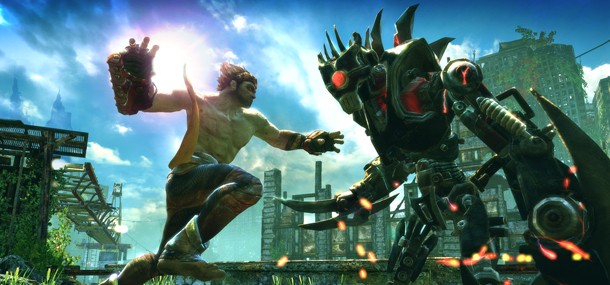
Enslaved: Odyssey to the West - Enslaved is a much larger game than the others featured on this list. There are ways that developer Ninja Theory could finagle a sequel, I suppose, but the ending and overall narrative leads me to believe that this was never the plan. Ninja Theory wanted to tell an interesting story with fully realized and well-performed characters, and I think they succeeded. If I were never to hear from Monkey and Trip again, I would be totally happy with that, and I think Ninja Theory is too. Besides, the studio is too busy expanding an already established franchise with Devil May Cry to worry about expanding its own.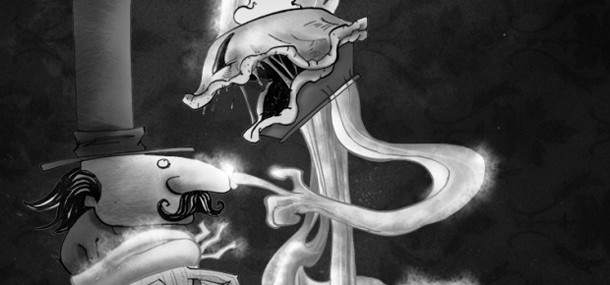
The Misadventures of P.B. Winterbottom - P.B. Winterbottom has a lot in common with games like Braid and Limbo. It’s full of interesting puzzles, sports a unique art style, and it really works best as a one-off downloadable title. Finishing P.B. Winterbottom does leave you wanting more, but not necessarily from Mr. Winterbottom. It makes you want to see what developer The Odd Gentlemen has up its sleeves outside of the pie-obsessed character.









